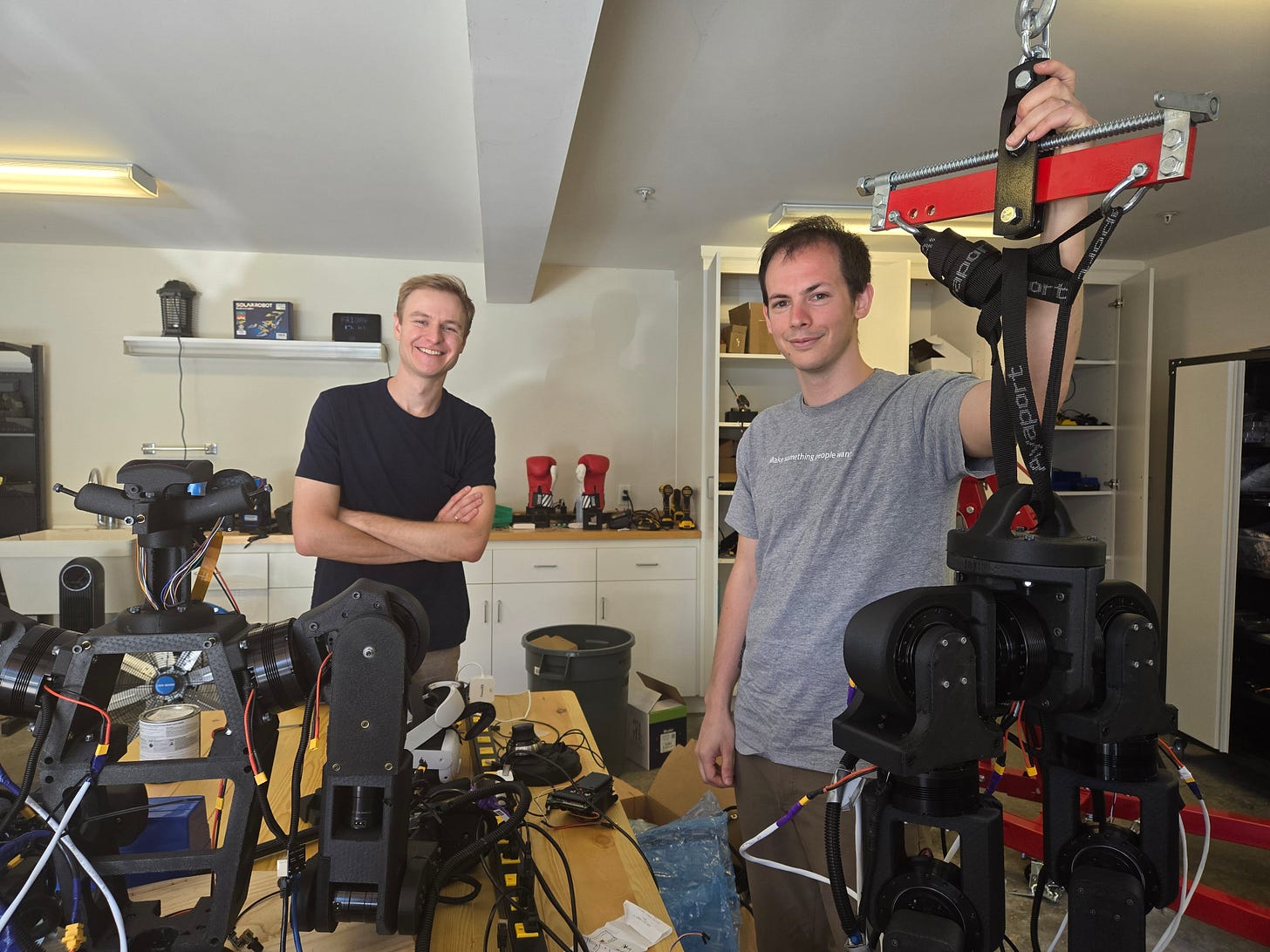K-Scale Labs: revolutionizing robotics from a Silicon Valley garage
A classic Silicon Valley Tale
Nestled in the heart of Silicon Valley, K-Scale Labs is writing its own chapter in the tech startup playbook. Step into their Atherton headquarters, and you'll find yourself in a scene straight out of a tech drama - a spacious living room filled with engineers coding on their laptops, whiteboards covered in intricate diagrams, and kitchen counters doubling as brainstorming hubs.
“Welcome to our company and home, sorry for the mess today,” greets Benjamin Bolte, K-Scale Labs’ co-founder and CEO. Dressed in a grey T-shirt with the motto “Make something people want,” Ben embodies the Silicon Valley tech vibe.
As a machine learning startup graduated from YC’s 2024 winter batch, K-Scale Labs is on a mission to democratize robotics through open-source technology. Their flagship project, Stompy, aims to be the world's first consumer-grade general-purpose bipedal robot, buildable for under $10,000 using 3D printing. But K-Scale's vision extends beyond hardware - they're developing an entire ecosystem, complete with an operating system, Vision-Language Models for task execution, and tools for training in simulated environments like Nvidia’s Isaac.
Ben’s co-founders bring impressive credentials. Paweł Budzianowski, the software lead, holds a PhD in dialogue systems from Cambridge University and was the machine learning lead at PolyAI. Matt Freed, the hardware lead, has a background in mechanical engineering and computer science, having worked at General Dynamics Electric Boat and founded his startup, Malamute.
Ben himself is a seasoned roboticist, having worked at Tesla and Meta AI, where he reported to Andrej Karpathy. Their collective expertise drives the ambitious goal of bringing humanoid robots into everyday life.
Living and working under one roof, the K-Scale team embodies the startup ethos of blurred lines between personal and professional life. This setup, while intense, fosters an environment ripe for innovation and rapid progress.
"We want to enable a world with a billion humanoid robots," Ben shares, his eyes alight with enthusiasm. "By lowering barriers, we're creating opportunities for everyone to participate in this robotic revolution."
In the garage-turned-workshop, Stompy takes shape amidst a sea of components and tools. Most parts are 3D printed, with some specialized sensors sourced from China. The robot is designed to tackle everyday tasks like walking, cleaning, and object manipulation, initially controlled via a VR headset.
K-Scale's approach is firmly rooted in open-source principles. They share updates on Discord, hold weekly online meetings, and collaborate with other open-source robotics pioneers. "We prefer making this an open-source project rather than a closed one," Ben explains. "It drives innovation and keeps us accountable."
Despite operating on limited budget at this early stage, K-Scale is confident in its ability to compete with well-funded rivals. Ben believes their focus and clear vision give them an edge in the complex world of robotics development.
Partnerships play a crucial role in K-Scale's strategy. They work closely with Chinese manufacturers, leveraging Silicon Valley's advanced models and China's manufacturing prowess. Ben appreciates the pragmatic attitude of these partners, focused on building great products rather than just talking big.
Looking ahead, K-Scale plans to release a new metal robot design and aims to have Stompy available for purchase by October, either as a kit or a fully assembled unit. As Ben reflects on their goals, he jokes about creating a robot to clean up after his busy wife - a reminder that even in the world of high-tech innovation, it's often the small, everyday problems that inspire the greatest leaps forward.
In the end, K-Scale Labs isn't just building robots - they're reimagining our relationship with technology. Through open-source collaboration and strategic partnerships, they're working to make humanoid robots an accessible, functional part of everyday life. It's a lofty goal, but if anyone can pull it off, it might be this dedicated team working tirelessly in a Silicon Valley garage.




